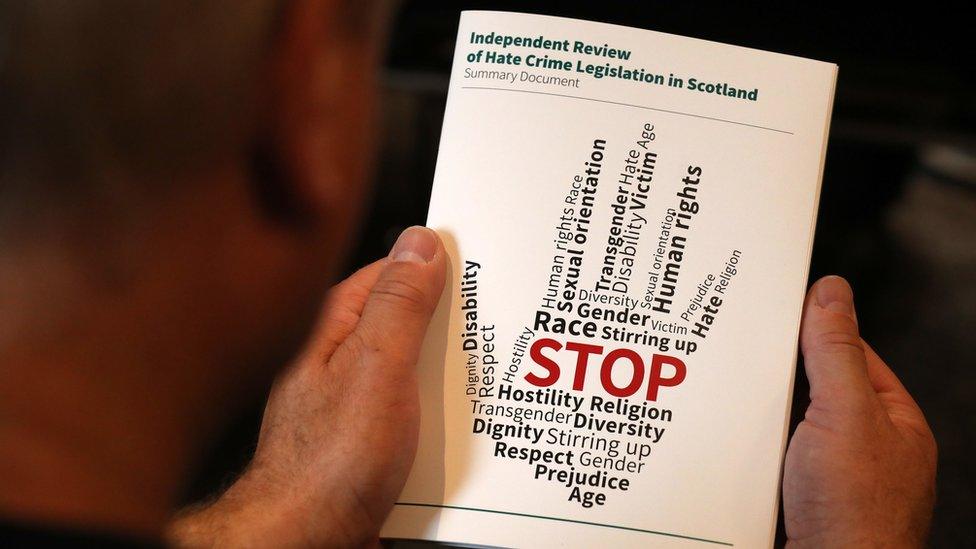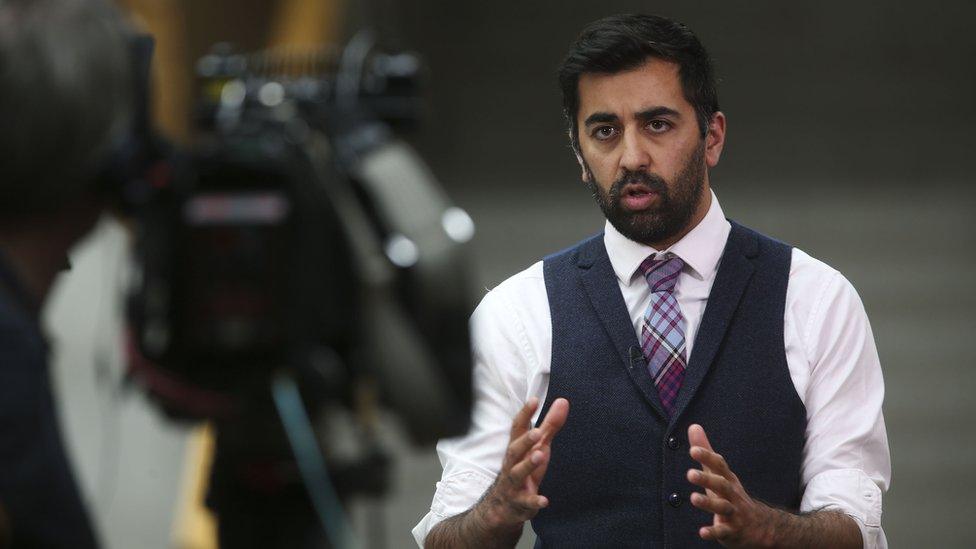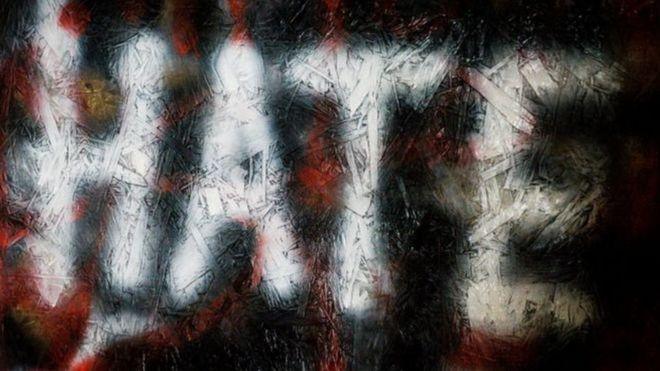MSPs vote down bid to scrap hate crime bill
- Published

MSPs have rejected a bid by the Scottish Conservatives to bring down the government's controversial hate crime legislation.
Ministers put forward the Hate Crime bill to tidy up the law and introduce new protections for vulnerable groups.
However, a range of organisations have voiced fears that the current plans could stifle freedom of speech.
The Tories want the government to tear up the bill and start again, but saw their motion voted down by MSPs.
The Scottish government has said it will "very carefully" consider concerns, but stands behind the "main purpose of the bill - to make clear that crimes motivated by hatred and prejudice will not be tolerated in modern Scotland".
Justice Secretary Humza Yousaf told the BBC Radio's Good Morning Scotland programme: "You can be as controversial or offensive as you want. What you can't do is be threatening or abusive with the intention or likelihood of stirring up hatred."
The legislation aims to simplify the law by bringing together multiple existing hate crime provisions into a single bill.
It would also create a new crime of "stirring up hatred", either "with intention" or where it is a likely consequence of an action.
Open to interpretation
This has drawn criticism from campaigners and comedians that the law could be too vague and open to interpretation.
More than 2,000 responses were submitted to a public consultation, with groups including the Faculty of Advocates, the Scottish Police Federation and a collective of leading authors saying it could threaten freedom of speech.
The legislation has not yet got as far as its first formal debate at Holyrood, and opposition parties have already indicated they will push for amendments when it does.

Humza Yousaf has said the bill "does not seek to stifle criticism or rigorous debate"
The Scottish Conservatives put forward a motion stressing that "hate crimes are a blight on society in Scotland", but adding that "the right to freedom of expression is the cornerstone of democracy and must never be compromised".
It concluded that ministers should "accept criticisms, remove its proposed bill and immediately begin work to draft the legislation that is needed to tackle hate crime, while not threatening to make free speech a crime".
Tory MSP Donald Cameron said hate crime was "intolerable and causes deep harm to its victims and communities", but said there had been "serious, legitimate and credible concerns posed by many in society" about the legislation.
He said the offence of stirring up hatred was "vague and confusing", saying this section was so badly drafted that it was "fatal to the bill's prospects".
He added: "The government must pause, draw breath, pull back from the brink and pull the bill, because the bill as drafted goes too far. It is too broken to fix."
'Cheap political points'
The motion needed the backing of all opposition parties to pass, but ultimately did win enough support and was amended entirely to wording put forward by Justice Secretary Humza Yousaf.
In the debate, a number of SNP backbenchers spoke out about the "stirring up hatred" elements of the bill, and in defence of freedom of speech.
Labour's Alex Rowley said "many problems have come to light" about the legislation, but said his party would back its general principles as long as it can be amended.
Green MSP John Finnie said it was "very disappointing that the Scottish Conservatives have decided to score cheap political points with an attempt to kill the bill stone dead before it has even had a chance to be scrutinised".
The Scottish LibDems meanwhile hit out against "significant flaws" in the legislation, but said they "remain committed to working with ministers and others to help deliver legislation that is effective".
'Listen carefully'
In her annual Programme for Government speech, First Minister Nicola Sturgeon had already indicated that ministers would be pressing ahead with the bill.
However, she said: "I know concerns have been raised. I want to give an assurance that we will listen carefully - freedom of speech and expression is fundamental in any democracy."
Mr Yousaf has denied claims that the bill was "too vague".
He insisted the proposed legislation "does not seek to stifle criticism or rigorous debate" and has pledged to find a way of making it effective while still preserving freedom of speech.
He said: "I do accept that there is a lot of strong feeling and that it is incumbent on government and parliamentarians to try to see where we can improve the bill.
"Walking away from the entire process - scrapping a bill which has a lot of support, particularly amongst those who are the targets of hate - would be the wrong thing to do."
- Published4 September 2020

- Published15 December 2020
